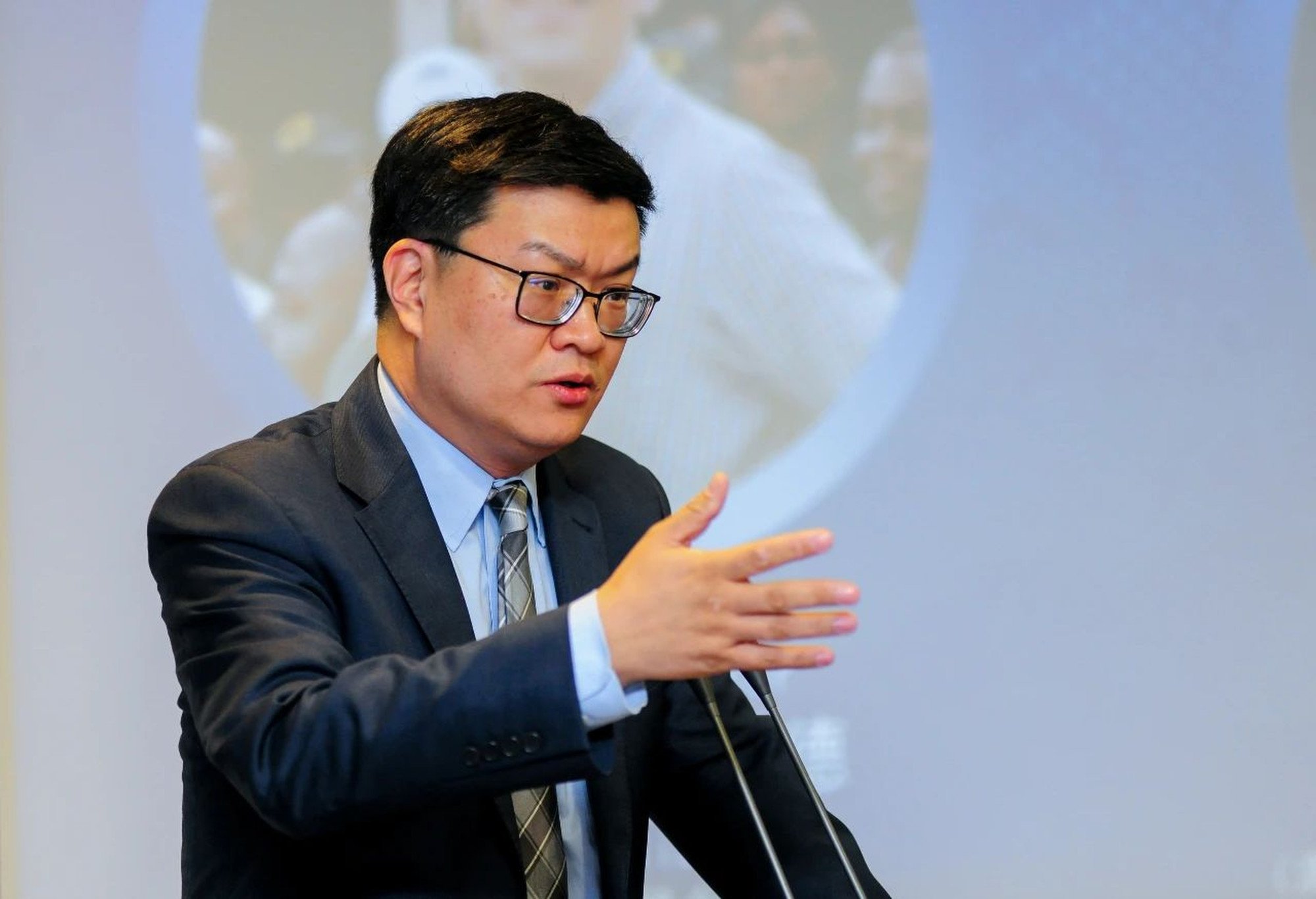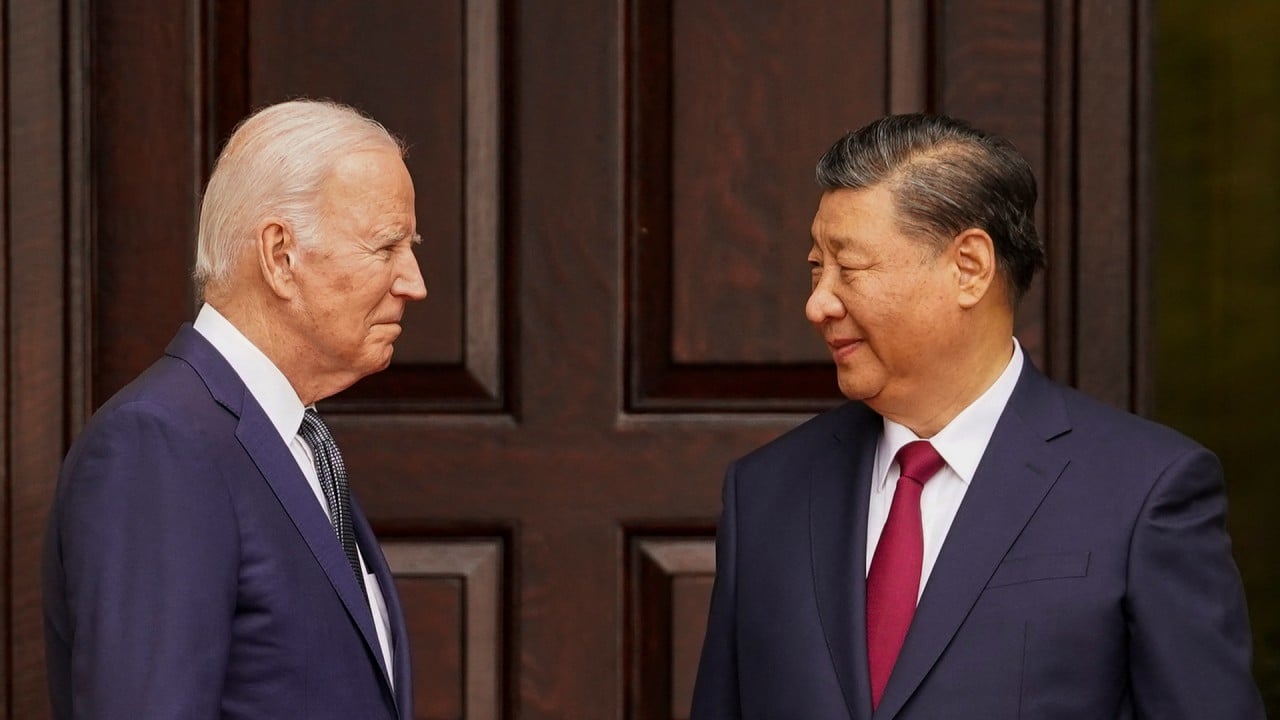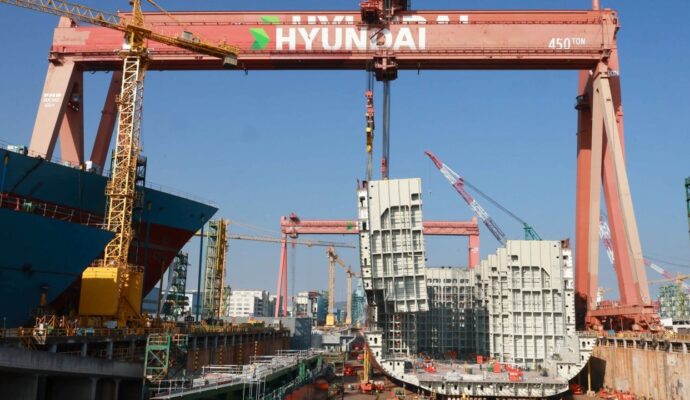He observed that “the level of concern and dedication to China-US competition and its impact appeared to be noticeably higher in China” compared to the United States, likely due to the gap in national strength.
He said China, as the “weaker side of the game”, should be aware of the risk of oversecuritisation – an academic term for the excessive identification of issues as security threats.
Xi-Biden summit hit pause on troubled US-China relations: analysts
Xi-Biden summit hit pause on troubled US-China relations: analysts
Speaking to the Post, Da cited supply chain globalisation as an example of something that should not be considered a security issue. If China and the United States move supply chains back to their own territories because of security concerns, it could cause inefficiency, he said.
He added that as a developing country, “China does not have that luxury to oversecuritise” and should judge “security issues” reasonably to ensure continuous development.
“Oversecuritisation means you need to devote a lot of resources to deal with a range of issues, so they can’t be devoted somewhere else. That’s the dilemma between security and development,” he said.
Incorrectly defining “security threats” could even hurt security if a state spends “excessive resources on a wrong goal”, causing it to miss out on other threats, he added.

Da noted that oversecuritisation is a global trend that is not limited to the US or China.
In his opinion piece, the international relations scholar warned that oversecuritisation could cause relations with the US to overshadow China’s ties with other countries.
“When deciding the attitude and relations with third parties, we should not draw the line with sole reference to the US,” he wrote.
US-China defence dialogues restored but unlikely to resolve disputes: analysts
US-China defence dialogues restored but unlikely to resolve disputes: analysts
Chinese officials and scholars have dubbed the outcome of the recent Xi-Biden summit the “San Francisco Vision”, named after the city where the meeting took place.
It was the first between the two leaders since they met a year ago in Indonesia, where they reached what Beijing called the “Bali Consensus”
This month’s meeting resulted in a series of agreements to resume high-level military and strategic talks.
Under the San Francisco Vision, China and the US should develop correct perceptions of each other, manage differences effectively, promote mutually beneficial cooperation and people-to-people exchanges, and take on the responsibilities of major powers, according to the Chinese embassy in the US.
Beijing also signalled the start of a “new phase of China-US relations” after the meeting and called the Xi-Biden summit an “important milestone” following a period of heightened tensions.
In a WeChat article posted on Tuesday, the embassy said the San Francisco Vision had given new momentum to China-US relations after numerous hiccups and difficulties.
It also emphasised the US should “stop arming Taiwan and support China’s peaceful reunification” and the two sides should respect each other’s “red lines”.
State-run news agency Xinhua published a column on the same day highlighting the “highly complementary” nature of the world’s two largest economies and the importance of them cooperating “to overcome global challenges and enhance the well-being of all humanity”.


